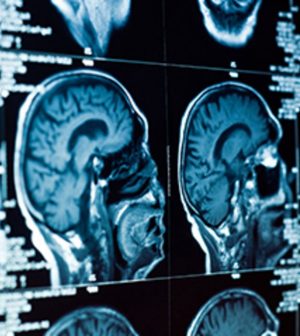- Could Your Grocery Store Meat Be Causing Recurring UTIs?
- Are You Making This Expensive Thermostat Error This Winter?
- Recognizing the Signs of Hypothyroidism
- 10 Strategies to Overcome Insomnia
- Could Artificial Sweeteners Be Aging the Brain Faster?
- Techniques for Soothing Your Nervous System
- Does the Water in Your House Smell Funny? Here’s Why
- Can a Daily Dose of Apple Cider Vinegar Actually Aid Weight Loss?
- 6 Health Beverages That Can Actually Spike Your Blood Sugar
- Treatment Options for Social Anxiety Disorder
One Part of Your Brain Could Point to the Mind’s Decline

Shrinkage of one of the brain’s key memory centers appears to herald thinking declines, a new study finds.
The region in question is the hippocampus, a two-sided structure located roughly above each ear and embedded deep within the brain’s temporal lobe. It’s long been known to play a crucial role in the storage and transference of short- and long-term memory.
The new research was published Nov. 15 in the journal Neurology. It focused on brain scan data collected from 128 people averaging 72 years of age.
A team led by Dr. Bernard Hanseeuw, of Harvard Medical School in Boston, used the scans to track changes in brain levels of amyloid plaques or tau tangles. Both are linked to the onset of Alzheimer’s disease.
The team also used the scans, which were taken annually, to chart any changes in the size of an individual’s hippocampus over the course of seven years.
People who showed the most significant shrinkage in their hippocampus were also most likely to display thinking declines over the study period, Hanseeuw’s group reported.
This seemed to occur independently of changes in levels of either amyloid or tau, they noted. They estimated that hippocampus shrinkage might account for 10% of thinking declines.
“These results suggest that neurodegenerative diseases other than Alzheimer’s are contributing to this decline, and measuring the hippocampus volume may help us evaluate these causes that are currently difficult to measure,” Hanseeuw said in a news release from the American Academy of Neurology.
“This could help us better predict who would respond to these new drugs as well as people’s trajectories of cognitive decline,” he reasoned.
More information:
Find out more about the brain and the hippocampus at Johns Hopkins Medicine.
Source: HealthDay
Copyright © 2026 HealthDay. All rights reserved.










